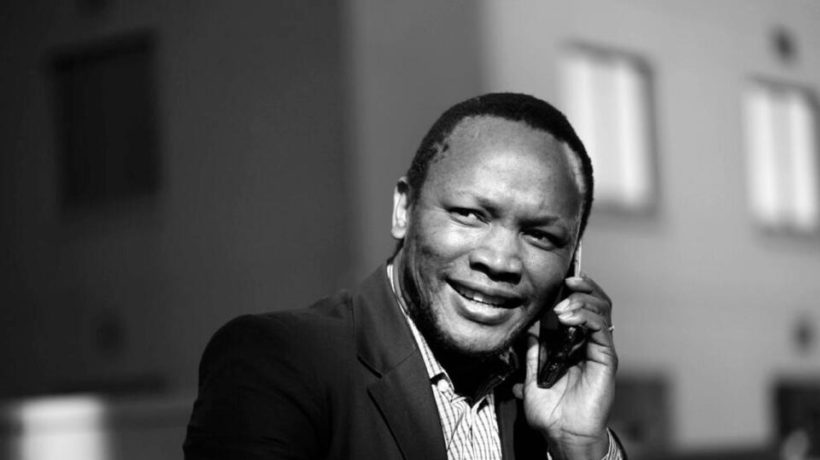Since day one of the “Please Call Me Idea”, there were no doubts about the value of the idea and its inventor, Kenneth Nkosana Makate. As the Vodacom newsletter declared, on the first day of its operation it was used by 140 000 customers and later in the early 2000s it would be accessible at 15c per transaction. Despite this understanding the Vodacom CEO, Alan Knott-Craig, at the time claimed in his book (Second Is Nothing) that he was the inventor of the idea. Vodacom has earned undisclosed income based on the idea and the matter has been in courts for 20 years since its existence. As a result, Nkosana the real inventor of the idea has earned nothing; instead he has spent money in court battles.
The “Please Call Me idea” has become a subject of major debate in South Africa, with some calling for Vodacom to pay Makate what is due to him and some claiming that he does not deserve much in terms of compensation. Recently after Makate was declared, by the Constitutional Court, as the inventor of the idea Vodacom offered to pay Makate R49 million which was considered by the inventor as peanuts.
Makate argues that the value of the idea has to be based on Vodacom earnings from the idea. He also argues that financial records upon which the value is determined, should be available to both parties. Anytime now the judge could declare on whether Vodacoms financial records concerning the Please Call Me idea can be accessible to both parties to fairly assess the basis upon which the value can be determined.
The Please Call Me matter raises the following question: What is the value of an idea?
A closer look at the Makate matter helps us to appreciate the role played by people who come up with ideas even if they don’t get involved in the process of implementing the idea. It also helps us to understand why it’s important to acknowledge Makates role in coming up with the idea and therefore why he is deserving of compensation based on agreed upon percentage between Makate and Vodacom.
The following are key factors that should be considered in the Please Call Me idea matter:
– Technology Commercialisation Strategy
– Technology
– Target Market
TECHNOLOGY COMMERCIALISATION STRATEGY
One of the main challenges at the in implementing consumer technology services in Africa was the affordability of communication. In comparison with other parts of the world, the African consumer market (at least at the time the idea was conceived) did not spend much on technology communication services. This was even more complex in the early 2000s when the Please Call Me service was invented. The affordability of communication was the driver for the creation of this service. At the time this was a major challenge for consumers and companies like Vodacom.
It can, therefore, be argued that the concept was not just a technology. It also introduced a technology commercialisation strategy that did not require the audience to pay, the freemium model. This alone was a great achievement by Makate who understood this based on his observations as a junior accountant at the time within Vodacom. What Makate achieved for Vodacom is equivalent to what Google achieved with enabling the public to search for anything online for free. When Google was created this approach was considered revolutionary. Looking back we know the important role that was played by the freemium in enabling the adoption of Google as a service.
TECHNOLOGY: USSD (Value Added Service)
The Please Call Me Service was not just a useless idea. It was an idea that took Unstructured Supplementary Service Data (USSD) to another level. What Makate introduced was a Value Added Service on top of the USSD platform. His addition was key. It was also different from other inventions from MTN and Orange Personal Communication Services. The key difference is related to the target market and business objective.
TARGET MARKET
Makates idea was that the service should be focused on a particular market, namely, that of people with prepaid cellular phones who were out of airtime in the African continent or similar regions. This target market was key, especially when one considers that the service was first introduced in the African continent where most users at the time were always out of airtime.
These factors should be considered before anyone declares that the Please Call Me service is not worth much. It is important that decision-makers who make decisions about the value of information products familiarise themselves with the true value of information assets and ideas.
Facebook acquired WhatsApp, a service which enabled free communication via mobile phones for US$19.3 billion. How valuers of WhatsApp determined such value for WhatsApp should be understood. The monetary value derived by Vodacom based on the Please Call Me service goes beyond advertising revenue. Makate enabled Vodacom to access a tough African market with a groundbreaking tech commercialisation strategy. The true value of the Please Call Me product should be determined. This process should not only take into account the advertising revenue generated from the service. This process should measure Please Call Service as a product. It should consider the Please Call Me service audience in the same way that the audience on Facebook is measured. Each person who used the service has to have a monetary value attached to them. Such clients did not just use the Please Call Me service. Some of them switched to Vodacom to use the service and some of them evolved to become loyal subscribers. All of these factors should be considered. The Please Call Me concept is worth a patent. Its inventor should be rewarded accordingly.







